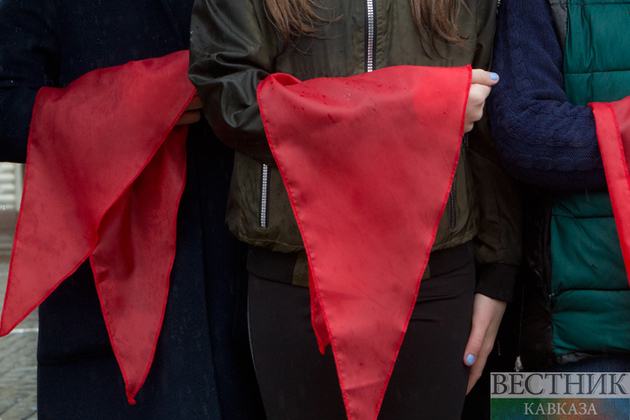Bishkek hosted the first Eurasian Economic Forum on May 26. In addition to an address from Russian President Vladimir Putin via videoconference, there were a number of panel discussions about integration of the five member states. In a panel titled “Eurasianism as a unifying idea: A look to the future,” a Russian representative called for integration to begin in schools, The Diplomat reports.
Vladimir Shamakhov, who heads the Northwestern Institute of the Presidential Academy of National Economy and Public Administration, pointed to Ukraine as evidence of the dire need for collaboration on schooling. “There should be unified educational programs for schools of Eurasianism in the most basic subjects, like history, social studies, mathematics, and the Russian language,” Shamakhov said. “We see from Ukraine that no attention has been paid to these issues for a long time. We lost Ukraine precisely because of this, because we overlooked education, culture, and language, and the lack of proper influence on young people.”
An article published by Jamiliya Musuralieva for Kaktus about Shamakhov’s comments sparked heated debates on social media. Concerns about “going back to the Soviet system” voiced in these debates echo the previous week’s discourse about commemorating a communist youth organization.
On May 19, schools across Kyrgyzstan celebrated the 100-year anniversary of the Vladimir Lenin All-Union Pioneer Organization. At the behest of the deputy minister of education, teachers organized celebrations in commemoration of the Pioneer Organization, which ceased activity following the collapse of the Soviet Union.
Students at one school in Karakol were given the classic red kerchief of the Pioneer uniform and lined up to sing the organization’s anthem without their parents’ knowledge or consent. The father of a third grader at the school wrote a scorching critique of the Pioneer cosplay on Facebook. The Facebook post went viral, with hundreds chiming in on the debate. Some users agreed with the father, but the comments are also filled with disparaging remarks, accusing the author of denying history and ignoring the need for children to have guidance in becoming patriots. They cite their parents’ and grandparents’ positive experiences as young pioneers.
Indeed, the scheme of Soviet projects in Central Asia, the development of a network of Pioneer clubs was, arguably, relatively benign. Kyrgyzstan’s first branch was established in 1925, and by 1929 there were 10,195 pioneers in the Kyrgyz SSR. Kyrgyz pioneers helped to build a railroad between Kant and Tokmok in 1939, and young people were heavily involved in war efforts during World War II. Hundreds of thousands of Kyrgyz pioneers attended summer camps, participated in music lessons, and played sports. Several Kyrgyz-language magazines for pioneers were published starting in the 1930s.
Nostalgia for Soviet times has been on the rise in Kyrgyzstan, and the Pioneer Organization is remembered especially fondly. Articles published in the mid-2010s in Vechernyi Bishkek and Limon recall that the Pioneer Organization was dearly loved by children, and that nearly every Soviet child dreamed of getting to wear the red kerchief and join the ranks of the Pioneers.
While the Pioneer Organization went under with the collapse of the Soviet Union, patriotic education persisted. Social scientists and Kyrgyzstani politicians alike have argued that schools play a major role in consolidating young citizens’ national loyalties and political identities. Since 2003, Kyrgyz schoolchildren study “ethics” (adep in Kyrgyz) with the goal of establishing a strong foundation for Kyrgyzstani youths’ spiritual development.
The controversy of Shamakhov’s comments and the celebration of the centenary of the Pioneers is less concerned with the fact that children’s political consciousness is being shaped at school. Rather, it’s a fight for what the content of that messaging looks like, and how much influence the former colonizer has over it. It’s about the Ministry of Education’s priorities, given the lack of funding for textbooks, for paying teachers, for keeping students warm in the winter, and for repairing schools that are falling apart or building new ones to accommodate growing cities.






